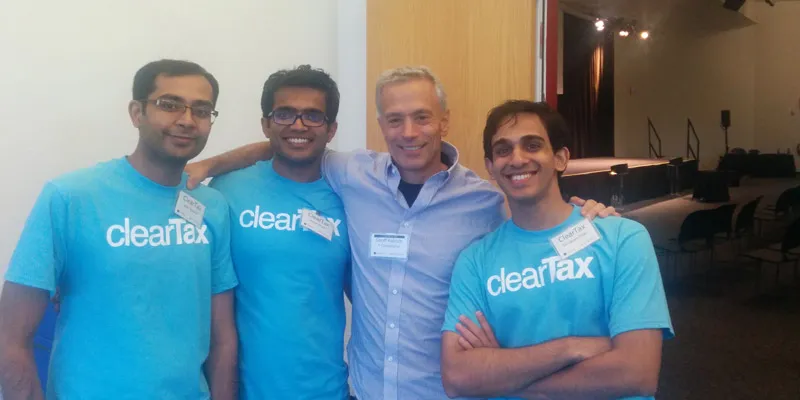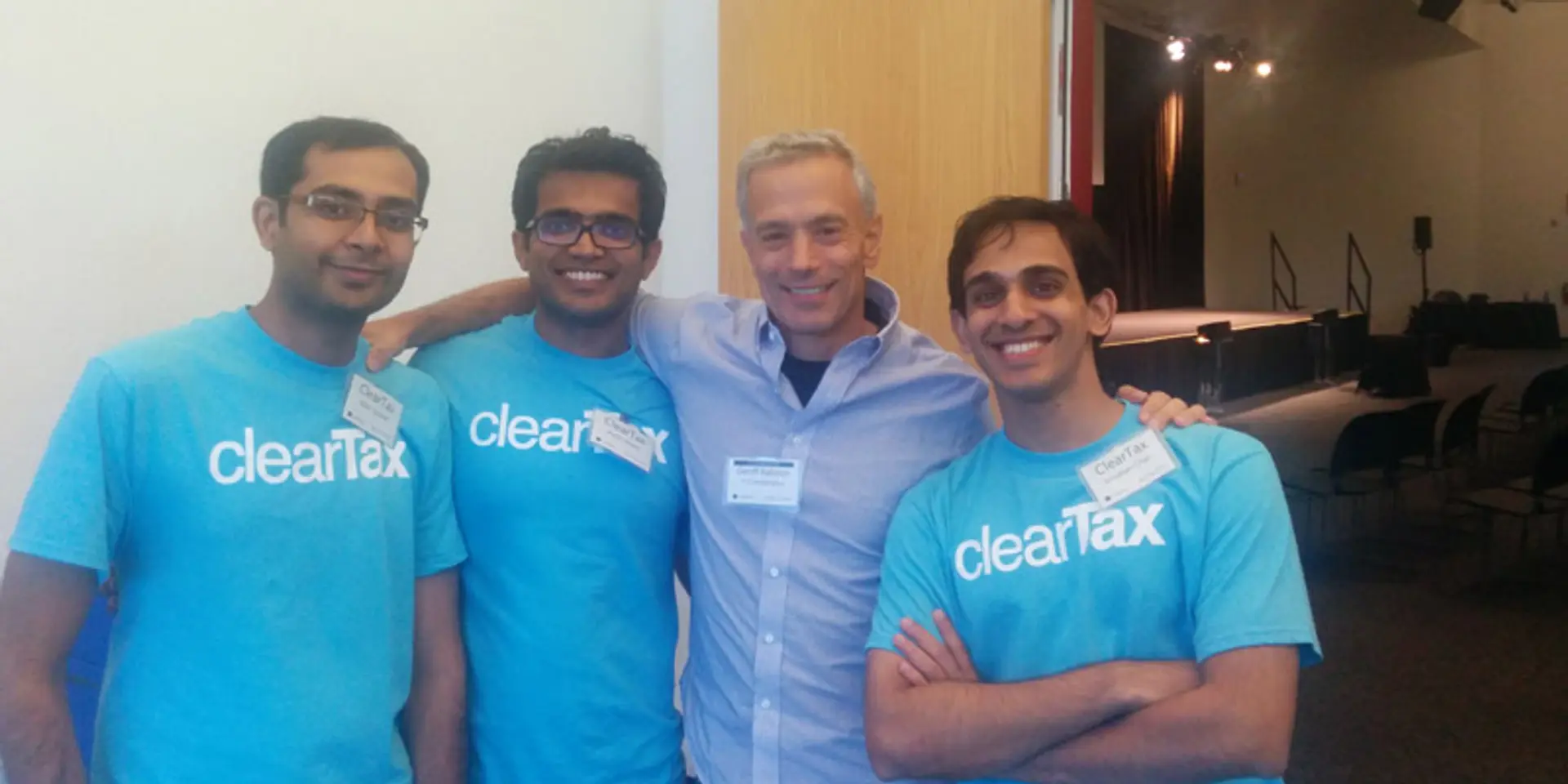Here’s why Indian startups must apply to Y Combinator
If someone asks, “Which is the world’s best startup accelerator?” Y Combinator is the only word that comes to mind.
Though in the recent times, Y Combinator has associated itself more with a seed funding organisation, than an accelerator, the reputation lives on. Even people with little knowledge of the global startup scene know Y Combinator, Paul Graham, and, now, Sam Altman (who took over from Paul Graham early last year).

The accelerator, founded in 2005, has incubated more than 800 startups across its biannual batches across summer and winter. The percentage of Indian (Indian-origin with global products) startups featured on this list is almost negligible (less than 1per cent). But last year, one India-focused startup, ClearTax.in, made headlines when it got selected into the summer ’14 batch of this reputed programme.
One year later, Archit Gupta, CEO and Co-founder of ClearTax.in, a Delhi-based online tax filing platform, talks about how Y Combinator changed their lives, and how such an experience can open startups to a world of possibilities.
The decision to apply: The application only takes a few hours to come up with, and there is nothing to lose.
Archit Gupta (AG): Before starting ClearTax in Delhi, I spent a few years working in the Silicon Valley in a startup. I had also seen some YC companies first hand, and am a huge fan of David Rusenko of Weebly (which is a YC-funded company).
Also, ClearTax was growing 5x every year; we wanted to get the right mentorship to build out the best company possible -- in culture, substance and focus. Paul Graham's essays have always deeply resonated with my team and me. It felt right to apply, even though there was no history (that I knew of at the time) of them ever funding a country-specific startup – especially India-focused.
The YC interview: After the short online application form is submitted, short-listed companies are invited to YC, Mountain View, for a 10-minute interview with the panelists.
(AG): The interview was very brief. Paul Graham, Trevor, Kirsty and Robert Morris interviewed us. Ankit Solanki, Srivatsan Chari and I had prepared a little bit with other YC alumni. The alumni hinted to us that things were going well if the panelists asked us a lot of questions or if YC partners riffed off things they mentioned.
Our interview was shorter than average. PG (Paul Graham) asked a few questions, and then we didn't even get to hang around for the full 10 minutes. We thought we wouldn’t get in till we got his call in the evening that day.
The moment of truth:
(AG): I was in a friend's car, and he parked his car for me to absorb the news and jump around in the parking lot.
The expectations from YC: It is the most prestigious accelerator, but it is better not to go with too many expectations because each startup brings back its own set of experiences and learning.
(AG): The exact value derivation was abstract at the time. The YC alums we met whole-heartedly recommended that we go ahead. We also thought fund raising would become slightly easier, but we weren’t clear about what to expect. In short, we wanted to get to the next level of building ClearTax.
The YC experience: It is one hell of an experience, prepare to rock and roll.
(AG): It was intense! We took multiple flights flying in and out of California, to Delhi, to continue working while our tax season was on. We had a natural deadline due to the tax season and that was a great forcing function. I have a blog post, which describes the value we derived.
The first two months, we were neck deep in work related to the tax season deadline (July 31st). The last few days were intensely focused on demo day, figuring out fund raising and navigating a lot of conflicting advice.
Point to be noted is that different YC partners give different advice, so you have to think a lot for yourself.
Also, it is an amazing place to build great friendships.
A typical day @ YC: It is a short three-month programme, which means each day is usually action packed.
(AG): Waking up, programming, fixing bugs, talking to our users, making progress on key metrics, getting more tax returns filed, scaling servers, helping fix whatever issue was at hand, thinking of new ideas on getting distribution, or getting PR done.
Tuesdays were different; we would go in for our weekly office hours with YC partners in the afternoon to report progress (or lack thereof). This was a good forcing function to be on top of our numbers- that discipline was very important.
After that, it was more or less a networking evening with our other batchmates and some speakers (typically founders or investors), who would come to talk about their experience building their startup.
Each of these speakers gave us a sort of a sneak peak into how tough building their own startups was. These dinners are always off the record, so speakers are quite candid and sometimes emotional at this point.
The coolest Tuesday speakers:
(AG): I’ve met Mark Zuckerberg, Peter Thiel (Co-founder PayPal), Adora Cheung (Co-founder HomeJoy), Patrick and John Collision (Co-founders of Stripe) and a lot of other founders of the best Internet and mobile startups of the world.
The Demo Day Party: Phew! Three months’ efforts all for this one day in front of the biggest investors and influencers in the Valley.
(AG): It is a lot of fun to get to a small finish line. Startups are long journeys; celebrating small wins and days are great.
The world YC opens you to:
(AG): It is truly amazing. The founders in your batch are the biggest advantage of going to YC, you can learn from them the most. Everyone is very aggressive about building their companies, but is also genuinely nice and cares a lot about other founders. I think this happens because every founder realises how hard it is to build a great startup.
The founders are also very accomplished. Almost everybody has had successful careers or has built an app with a millions users, or a library which serves 80 per cent of the Internet core traffic. Each founder is unique.
Why YC for Indian startups:
(AG): The YC network is very powerful in the Bay Area, and they have great mentors.
Also, whatever can happen to a startup (be it good or bad), they've seen it all, so you get a lot of support, experience and help in building your company and scaling it to the next level.
All said, YC is just one possibility. You should continue working on your startup with or without YC. Because even we believe that we would have been fine without YC, but we definitely know that we were able to get to our goals faster because of it!
The stuff YC looks for:
(AG): Firstly, the YC partners are looking for a very strong team. Our example, the ClearTax team, Srivatsan, Ankit and I, and now the larger team have spent years together. Everyone brings something different to the table, and we spend long hours working together. That chemistry is very important. You have to like each other and respect each other to be in it for the very long term.
Second, they look for resilience and determination. If there is any marker, which exhibits deep resilience and determination, do write it in to your application. People give up easily especially when things get difficult. If you believe you'll keep going despite circumstances, then you'll make a great founder, with or without YC. We at ClearTax worked for three years before YC. I think they probably valued that in our application.
Thirdly, I think they are looking for founders who can articulate their visions well and get things done. You have to be able to communicate well to sell your vision to investors, employees, customers and spouses.
Lastly, they do pay attention to your idea, but if the YC partners think the idea is bad and they still like the team, they will go ahead and invest.
ClearTax as the YC Alum:
(AG): This year has been fantastic. A lot of aspiring Indian founders have reached out to us (email [email protected]). I try to review as many applications I can, but it is challenging because the tax deadline is coming too. I feel touched when I think about how the other YC alums took time out to help us throughout our stay in the Valley.
Tips for the YC application:
- Write for a global audience; they may not have enough relevant information about India.
- Write short clear sentences, and then focus on explaining in the clearest way possible what you do. I’ve read some applications and I still have no clue what the startup does. The YC partners are going to read thousands of applications. You need to be very concise, and you need to communicate your idea quickly in the fewest words possible.
- The younger founders who write to me tend to think that there is some secret way of getting into YC. I don't think there is any, but if you write your application seriously, the YC partners will read it.
- Get introduced to other YC alums once you get selected for the YC interview. They can help you practice for the interview.
Note: The application deadline for the YC Summer 2015 batch is March 28, 08.30am IST.







